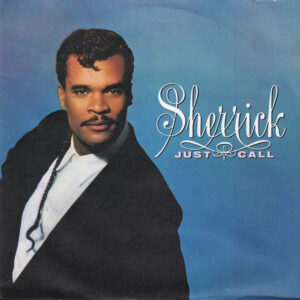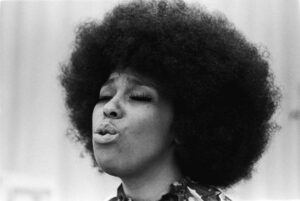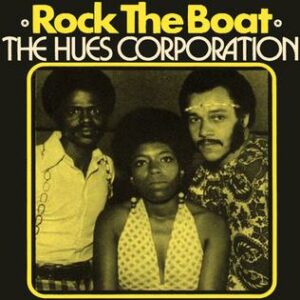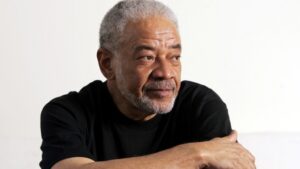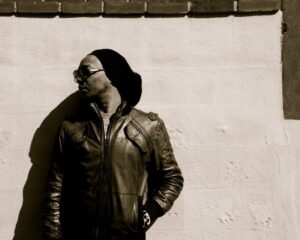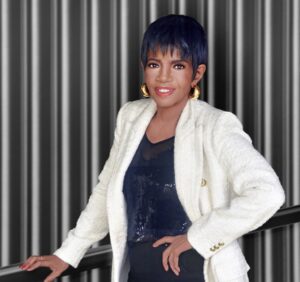(October 3, 2013) I am not a black woman. Okay, I’m being a bit sarcastic, but my point is, what I’m about to say isn’t an exercise in self-pity. I will also admit that I’m not a reality show fan. Sports are my reality shows, and so I don’t spend a lot of time in front of the multitude of cable shows that are parodied each week on Talk Soup.
What I am is a music lover, and so I was naturally drawn to the TV One reality series R&B Divas, a show that brings together some extremely talented female R&B singers for thinly plotted events such as birthday parties and concerts, and then films their interaction. TV One won me over a few years ago with Unsung, a weekly series that does a good job of dealing with the complexity of fame and genius as it pertains to underappreciated R&B stars of the past. It was with that positive reference point that I approached R&B Divas.
Unfortunately, as fans of the Divas franchise know, the Atlanta show, in its two seasons, has veered sharply from being about music, and has ended up closer to Real Housewives of Atlanta than to Unsung. The now predictable formula is that each episode focuses on a minor “get together” that leads to several meltdowns and bizarre behavior. And there is yelling – Lord is there yelling. Unfortunately, the silly diversions grew so great that you’d hardly remember these are some of the most talented singers around. By the end of Season Two, I simply stopped watching.
This year the show expanded to L.A. with a group of well respected artists such as multiple SoulTracks Readers’ Choice Awards winner Kelly Price, Chante Moore, Lil Mo and Dawn Robinson. They are singers I admire, and my interest was peaked again. The first two episodes of R&B Divas L.A. were wonderful – positive, nuanced presentations of strong women who displayed their brilliant singing talent while also supporting each other as they planned for a new, joint stage show. The shows also displayed them as real women — not just “stars” — dealing with real issues (financial, physical and emotional). So how did it happen that, just a month later, R&B Divas L.A. had become the typical reality show mess, with arguments, back stabbing and the usual nonsense, culminating with Kelly Price’s now famous “boots and Vaseline” moment?
Unfortunately, the devolution of R&B Divas L.A. is typical of what reality television has become: television that turns complex three dimensional people into two dimensions — and what’s worse, two dimensions that play to the basest, most insulting stereotypes: Southern men are stupid, knuckle-dragging Neanderthals, and, more specifically here, African American women are angry and irrational.
At the first level, it is the show’s producers who are the instigators, regularly pushing normal people to act abnormal, under threat of removal. As reality show producer Michelle Crouch wrote in Readers Digest: “I once had a woman cast as a villain who turned out to be the nicest lady ever. As producer, I sat her down and said, ‘Listen, you were cast in this role. If you want to make good TV, if you want the series to come back and make more money next year, then you need to play along. If you don’t, you’re going to be cut out entirely.’ It worked.” According to Price, on Divas it was the show’s producers who were troubled by the lack of tension, and suggested to her that she add some drama to make it “better viewing.” That she did and more, and in the process of performing her antics for the camera she lost friendships and may have irrevocably damaged her career.
More insidious is what happens after the filming is done, when dozens of hours of film are edited for maximum impact, even where they paint a picture that is far from accurate. Says Crouch, “We often take different clips and edit them together to sound like one conversation, sometimes drastically changing the meaning. We can even create complete sentences from scratch. It’s so common, we have a name for it: frankenbiting.”
While the show’s producers bear the brunt of the blame, the stars are not exempt from criticism. Whether it is the paycheck or the desire for increased fame, they play along even when it feels wrong. Kelly Price admitted to both confusion and simply going too far in her actions on Divas. So why do it? The unfortunate truth is, for many entertainers, reality TV is a way to make a living in a tough environment. In the case of both the LA and Atlanta Divas, these are immensely talented women who should be able to “make it” exclusively on their singing, but in a world of decreasing CD sales and unfair treatment of adult singers by radio, they often need both the pay and the exposure of reality television. I just wish their reality fame was a bit more positive and uplifting, because there is a heavy price to pay for this particular “frankenbit” kind of fame.
There is a bigger, more troubling picture here, too. While there is little dispute that feelings are hurt and careers are sometimes dogged by the nonsense that goes on in reality television, there is damage done by these shows that goes beyond those directly involved: It is the unmeasured damage done to those who daily fight the stereotypes that those shows perpetuate.
I deal regularly with thousands of people, and I can’t say that I know five who would fit in the characterizations of RHOA or Basketball Wives or the worst moments of Divas. Television’s inherent limitations cause it to gloss over the complexity of almost anyone in its focus. But it seems to paint a particularly unfair picture of a few target groups, including African American women, and it is tough to see how tired stereotypes can die when they are displayed to millions of people in living color on a nightly basis. The real African American women I know are still fighting daily against long debunked stereotypes, but it is a battle that will be tough to win when shows on networks like VH1, Bravo and, most surprisingly, TV One, serve effectively as advertisements for those negative myths. They complicate the path to truth in a most insidious, insulting way. And they will continue until people stop watching or people start complaining. Well, I’ve stopped watching and this is my public complaint.
No, I am not a black woman…and thank God I don’t play one on reality TV.
By Chris Rizik
.

